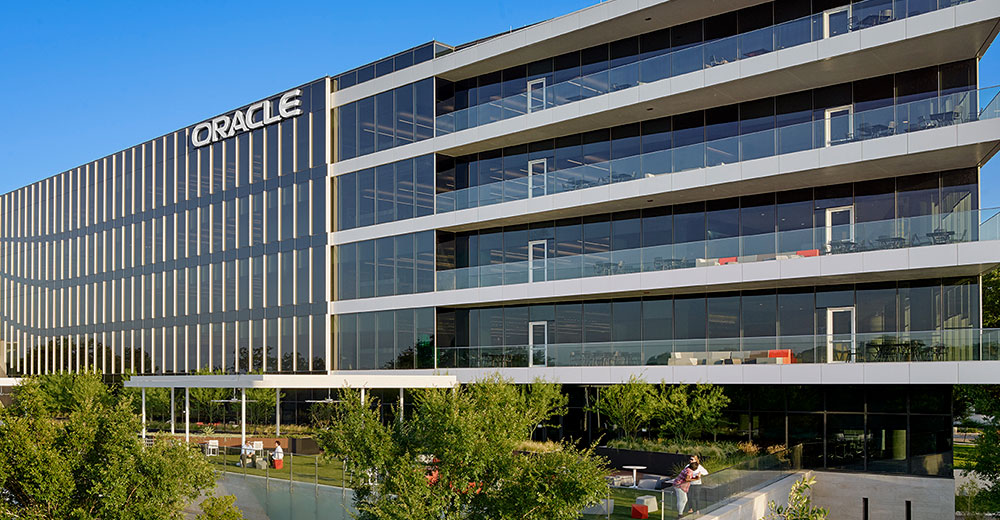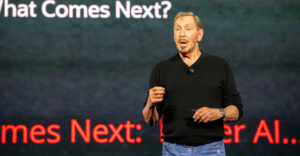We are soooo not in Kansas anymore.
The concept of the computer room, on-premises, once upon a time air-conditioned or possibly even water-cooled, and supporting a minimal number of flavors of COBOL is gone, gone, gone. It has been for many years, but its descendants are also now antiques.
They started going away with the internet, which was a broader version of client-server, but events have accelerated so much in recent years that you can almost be forgiven for not thinking of the internet at all.
Hardware and platform vendors are tripping over themselves to offer computing anywhere, fully encrypted and securely supported by a plethora of operating systems and other stack elements.
Last week’s announcements from Oracle provide strong evidence of a revolution in hardware we haven’t seen since the standardization of the PC. Oracle’s announcements, in particular, place it in a very small class of companies whose finances make them Wall Street darlings and make hardware sexy again.
Compute Cloud@Customer
The news goes something like this. Oracle introduced Compute Cloud@Customer, a rack-scale cloud infrastructure that enables enterprises to leverage Oracle Cloud Infrastructure (OCI) compute services across diverse locations.
With this, customers can disperse workloads to locations where they make the most sense, including within the business or networked across Oracle Cloud Regions — consider manufacturing in the Far East and design in Europe with consumption anywhere. All those locations need a cut of the same data.
Oracle’s base system has 532 processor cores and 150TB of storage, with the ability to scale each category independently beyond 6,000 processor cores and 3.4PB of storage. (I actually wrote PB for petabyte. First time.)
Before I go further, let me simply observe that if I were building a military IT system for the future, which Oracle and other vendors are doing, this would be a good place to start. Did I mention that all data is encrypted all the time?
To make a crude analogy, it seems like Oracle has done for workloads and applications what the internet did for computers. It provides a dynamic and highly configurable system that can provide fault tolerance under extreme conditions. The net result is that your systems need never go down again — or if they do, we have way more serious problems to deal with.
It is also noteworthy that Oracle has shrunk its on-prem cloud to a single rack perfect, perhaps for a submarine or aircraft carrier. To me, this seems like another benefit of doing DOD work. It reminds me of the space race, where NASA built things like handheld video cameras, ruggedized computers, and even an electric cart with four-wheel steering just to go to the moon — all that, in addition to the necessary launchers, landers, and global mission control systems.
Democratizing AI Through Centralized Tech
In one way, none of this should surprise us. After all, if we’re going to rely on artificial intelligence going forward, we will need abundant data and processors to train models, which is one way to get it efficiently and cost-effectively.
Another analogy worth pursuing involves the utilities of the 19th century; things like municipal water, sanitation, electricity, and natural gas have something in common with the Oracle announcement.
The evolution of utility systems represents a time when provisioning such things for individuals became too cumbersome and expensive. Centralizing utilities helped bring costs down and democratize their benefits, thus raising living standards for all.
Big networks of public-private IT won’t do much to democratize IT; the cell phone already did that. But these networks will do a lot to democratize AI. With them, you won’t have to rely on having costly and sophisticated tech in-house. Indeed, we will need this tech, for example, to help untangle supply chains in the future and provide workarounds for vexing issues such as mitigating the impacts of climate change on local communities or even finding solutions to reverse it.
Lastly, all of this is moving down the commoditization curve, so we can expect anyone who wants it to be able to access it. This increased accessibility means we should start planning now for how to handle bad actors, be they nation-states or individuals.


























































